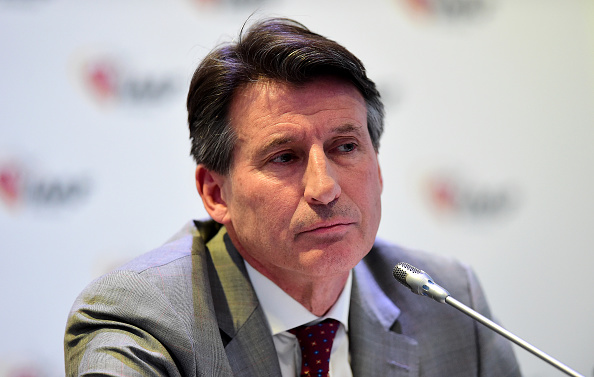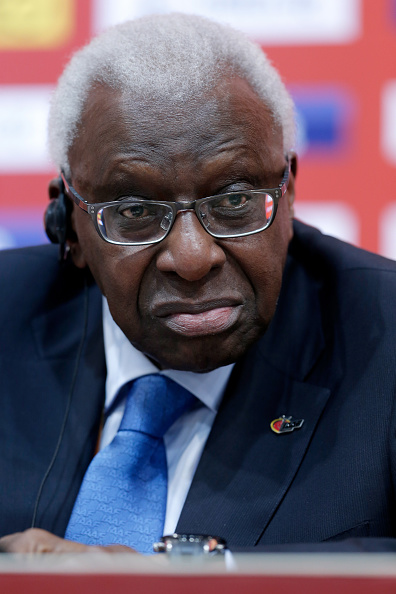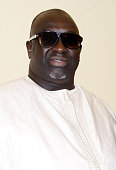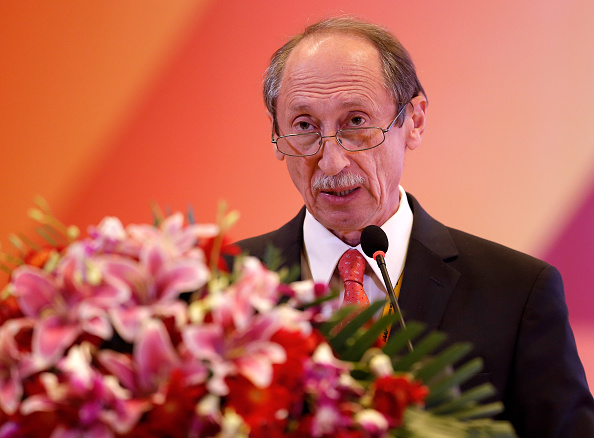If you have seen Fight Club, the 1999 movie with Brad Pitt and Edward Norton (New York Times: “surely the defining cult movie of our time”), or, better yet, read the 1996 Chuck Palahniuk novel that inspired it, you know the elemental first rule of Fight Club: you do not talk about Fight Club.
This is the key to understanding what happened at track and field’s international governing body, the IAAF, in regards to doping in Russia (mostly) and cover-ups, and as a spur going forward, because institutional, governance and cultural changes must be enacted to ensure that what happened under the watch of the former IAAF president, Lamine Diack, can never happen again.
It’s also fundamental in understanding why Sebastian Coe, elected IAAF president last August, is the right man for the reform job.
He’s not going to resign. Nor should he.
To be clear:
We live in a 24/7 world where, increasingly, everything seemingly must be susceptible to immediate resolution.
Regrettably, far too often this jump-starts a rush to judgment.
A powerful driver in this cable-TV, talking-head world, the noise amplified by social media, is protest and moral arousal, as the New York Times columnist Thomas L. Friedman wrote in his column Wednesday.
Quoting the leadership expert Dov Seidman, Friedman writes that when moral arousal manifests as moral outrage, “it can either inspire or repress a serious conversation or the truth.”
More from Seidman: “If moral outrage, as justified as it may be, is followed immediately by demands for firings or resignations, it can result in a vicious cycle of moral outrage being met with equal outrage, as opposed to a virtuous cycle of dialogue and the hard work of forging real understanding and enduring agreements.”
Coe is the only person in track and field capable of leading, driving and instituting the change that must now be effected.
Any suggestion that the sport ought to be led instead by an outsider is misplaced, and seriously.
Sport entities carry their own distinct cultures, and failure to appreciate, to understand and to be able to move within those cultures is a recipe for disaster.
Evidence: the U.S. Olympic Committee’s turn seven years ago to outsider Stephanie Streeter as chief executive. That ended within months.
To the point at hand: Coe is not accused of any misconduct or wrongdoing. He was legitimately elected. It’s time to get to the “hard work of forging real understanding and enduring agreements.”
In a report made public Thursday, a World Anti-Doping Agency independent commission headed by the Canadian lawyer Dick Pound alleged that Lamine Diack orchestrated a conspiracy to cover-up certain doping results, mostly in Russia.
The conspiracy revolved, in the words of the report, around a “close inner circle.” That is, just a few people: Diack; two of his sons, Papa Massata Diack and Khalil, also known as Ibrahima; and Diack’s personal lawyer, Habib Cissé.
With the “consultants and lawyer in place,” according to the report, Lamine Diack created an “informal illegitimate governance structure outside the formal governance structure.”
Their “familiar or close personal ties to [the IAAF president] facilitated the emergence of this powerful rogue group outside the IAAF governance structure, yet operated under the aegis of the IAAF.”
At some level, according to the report, the conspiracy also metastasized to include the Russian treasurer of the IAAF, Valentin Balakhnichev; a Russian national-team coach, Alexi Melnikov; and the director of the IAAF’s medical and anti-doping department, Dr. Gabriel Dollé.
Last week, per the IAAF ethics commission, Papa Diack, Balakhnichev and Melnikov got life bans from the sport, Dollé a five-year suspension.
Lamine Diack and Cissé are now facing criminal inquiry in France.
Balakhhnichev gets to deal with the fallout in Russia. Good luck with that, and enjoy any and all meetings with Mr. Putin, depicted in the report as someone with whom Lamine Diack said he had “struck up a friendship.”
The report is notable for who it names and, critically, who it does not.
Again, Diack and sons; Cissé; Dollé; Balakhnichev; Melnikov.
For good measure, there is also reference to “sports marketing consultant” Ian Tan Tong Han, a business associate (ahem) and close friend of Papa Diack’s — Tan’s baby, born two years ago, is named “Massata” — who “appears to be part of the illicit informal governance system of the IAAF.”
That’s it.
The report notes, meanwhile, that other senior IAAF staff members were quite properly “antagonistic” in regards to the case management of Russian athletes and, from the point of view of the conspiracy, “needed to be bribed to stay quiet.”
These included the director of the office of the president, Cheikh Thiaré; Nick Davies, the deputy secretary general; Dollé; and Dr. Pierre Yves Garnier, at the time in charge of what in anti-doping circles is known as the “athlete biological passport,” a work-up of blood values over time.
From the report: Lamine Diack apparently confirmed in interviews with French authorities that Papa Diack “gave money to one or the other to keep them quiet and so they are not opposed.”
Recent media reports have Thiaré, Davies and Garnier refuting those claims, the report says, adding that Dollé “regrets having been involved.”
Draw your own conclusions about who the “one or the other” might be.
Davies, meanwhile, the longtime IAAF spokesman, is now apparently in line to be made the fall guy for a July, 2013, email to Papa Diack, the report calling the email “inexplicable.” This is a difficult situation for all of us who have known, and worked with, Davies. He cares passionately about track and field, and has sought only to do what — from his perspective — has been the right thing.
At any rate, in the report’s version of the money shot, it declares that “corruption was embedded in the organization,” meaning the IAAF, adding, “It cannot be ignored or dismissed as attributable to the odd renegade acting on his own. The IAAF allowed the conduct to occur and must accept its responsibility. Continued denial will simply make it more difficult to make genuine progress.”
This begs the obvious question:
What per se is — or, more properly, was — the IAAF?
This inquiry is neither didactic nor pedantic.
The report, unanimously approved by all three independent commission members — former WADA boss Pound, Canadian law professor and anti-doping expert Richard McLaren and Günter Younger, the senior German law enforcement official and cyber-crime authority — also says, “The fact of the matter is that individuals at the very top of the IAAF were implicated in conduct that reflects on the organization itself (as well as on the particular individuals involved).”
In practical terms, for the 16 years he was president, Diack was the IAAF. He ran it like a fiefdom. This he learned from his predecessor, Italy’s Primo Nebiolo, president for 18 years before that.
The report asserts that the IAAF’s 27-member council “could not have been unaware of the extent of doping in [track and field] and the non-enforcement of applicable anti-doping rules.” It also says the council “could not have been unaware of the level of nepotism that operated within the IAAF.”
Fascinating.
In virtually every other instance, the report goes into incredible, sometimes granular detail, even providing an appendix at the end, to document “the non-enforcement of applicable anti-doping rules.” Names, places, dates and more.
But in making such a blanket declaration — nothing.
If the council “could not have been unaware” of doping, when were any or all of them made so aware? Where? Who, in particular? By what means?
For this, nothing — no answer. Just this sweeping assertion.
Was the council aware Papa Diack was around? Surely.
But did those on the council, including Coe, an IAAF vice president from 2007, know or appreciate there was corruption afoot?
The report: “It is increasingly clear that far more IAAF staff knew about the problems than has currently been acknowledged. It is not credible that elected officials were unaware of the situation affecting (for purposes of the IC mandate) athletics in Russia. If, therefore, the circle of knowledge was so extensive, why was nothing done?”
Here the report is disingenuous, or at best there is a powerful disconnect.
It is for sure credible that elected officials were unaware.
Why?
Because of the first rule of Fight Club.
Which also happens to be the first rule of any conspiracy.
This is self-evident: the more people who know about something illicit, the more risk that someone who shouldn’t know is going to find out, and do something to disrupt the conspiracy.
Look, let’s have some common sense.
Did Lamine Diack call over Coe — or for that matter, the senior vice president from 2011-15, American Bob Hersh, or any of the others on the council, including Sergei Bubka, an IAAF mainstay, runner-up to Coe in last year's presidential election — and whisper, hey, guess what I’m doing that I really shouldn’t?
There is zero evidence in the report of any such thing.
So, moving forward, as Pound said at a news conference Thursday in Munich in releasing the report, it is one thing to recommend that the IAAF should, for public relations and other purposes, come clean:
“Of course, there was a cover-up and delay, and all sorts of things. Acknowledge this. If you can’t acknowledge it, you can’t get past it.”
He also said, quite rightly, “This started with the president. The president was elected four times by the congress. It then went to the treasurer, elected by the congress. It then goes to the personal advisor of the president, inserted into the management structure. It goes to the director of the medical and anti-doping [department]. It goes to nepotistic appointments. I’m sorry. That affects the reputation of the IAAF. You can deny that all you wish but I think you’ve got to take that on board and come out the other side.”
At the same time, it is quite another to say that Coe should, by association, be guilty as well. It’s not enough — not nearly — that he was part of the structure of the organization, and critically at a time when most of his focus was devoted to organizing the London 2012 Games.
That’s not the way things work. Nor should they.
Which Pound also made plain.
In response to a news conference question about whether Coe had lied in regard to a cover-up, Pound said, “I think you’ve got to understand the concentration of power in and around the president of any international federation.” Too, to understand “the relative infrequency with which something like the IAAF council would meet and the level of information that would be conveyed from those at the top to the council, particularly if it happened to deal with problems.
“If you’re asking to me to give an opinion or not as to whether he lied or not, I would say he did not lie.”
[Watch Pound's comments here.]
Pound also said he he believes Coe had “not the faintest idea of the extent” of Diack’s alleged corruption when he took over last August.
Pound said, too, “I think it’s a fabulous opportunity for the IAAF to seize this opportunity and under strong leadership to move forward. There’s an enormous amount of repetitional recovery that has to occur here and I can’t … think of anyone better than Lord Coe to lead that.”
Amen.
In the world of possibilities, it must be considered that there is evidence tying Coe to something.
But we don’t live in a world of fiction, or what-if’s. We go by what we can document, and prove. Anything else is just so much more outrage. It’s time now for dialogue and enduring change.
As WADA president Craig Reedie, in a release issued after the news conference, said, “It is now important that the IAAF, under the leadership of Sebastian Coe, adopts the recommendations of the report in full.”
Coe told the BBC Thursday in Munich that the IAAF would “redouble our efforts, to be clear to people we are not in denial.”
He added, “My responsibility is to absorb the lessons of the past and to shape the future. The changes I am making will do that. The road back to trust is going to be a long one.”
Nine days ago, IAAF staff put out a news release in which Coe set forth a 10-point “road map” aimed at rebuilding trust, in both the federation and in track and field competition itself, the idea being that you have to be able to have confidence in the federation itself and, more important, believe what you see on the track or in the field events.
The release drew comparatively little attention. Now is the time for it to take center stage, and the dialogue over how to rebuild that trust and confidence begin in earnest.
“Be under no illusion about how seriously I take these issues,” Coe said in the release. “I am president of an international federation which is under serious investigation and I represent a sport under intense scrutiny. My vision is to have a sport that attracts more young people. The average age of those watching track and field is 55 years old. That is not sustainable.
“The key to making that vision a reality is creating a sport that people once more trust in. Athletics,” meaning track and field, “ must be a sport that athletes, fans, sponsors, media and parents alike know is safe to compete in on a level playing field and one in which clean effort is rewarded and celebrated.”











